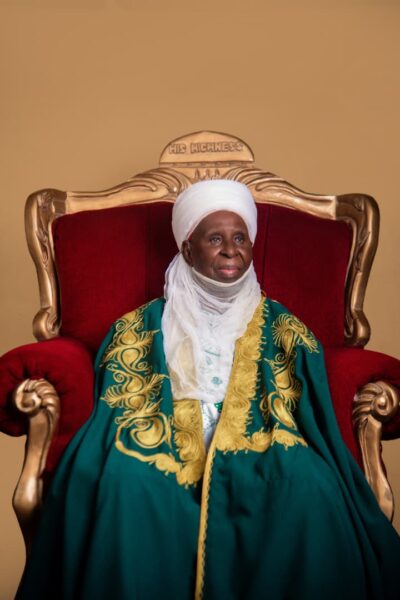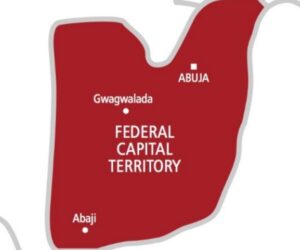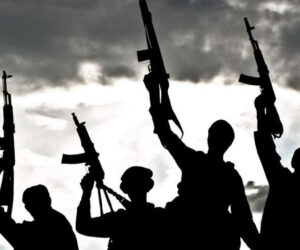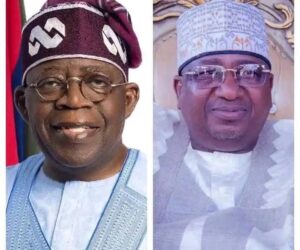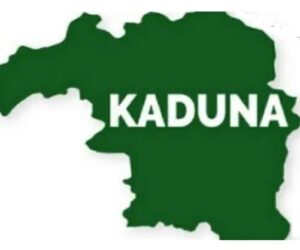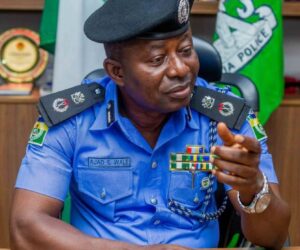The Chief of Kagoro and Oegwam Oegworok, Dr. Ufuwai Bonet, celebrated his 90th birthday this week. In the interview, His Majesty speaks on his early childhood, roles of traditional rulers and why communities must collaborate with the government to bring peace and development, among others. Excerpts.
Background/history
From history, I was told that I was born premature at seven months. At that time, it was difficult for children born at that time to survive. However, I survived through the grace of God, not for any other reason, except the Almighty God thought I should live. I had several cases of being sick, and that was why when the first elementary school was opened in Kagoro in 1943, my uncle insisted I should be enrolled. His intention was that as a registered pupil, I would be taken care of by the government or the Native Authority (NA).
Of course, during that time, anytime anyone was sick, it was normal to attribute such to witches. Initially before my enrolment in primary school, I was taken to Kukum Daji to live with my grandmother. I live with my grandmother who relocated to Kukum Daji to marry someone after the death of my grandfather. By taking me to Kukum Daji, they all thought I would escape from the evil influence of witches that were making me fall sick, so they thought.
When the first NA school was opened, we used to sit under the mango tree, just over the palace and it used to be just under the mango tree- just over in front of the palace. We were taught with the use of sand where we learned how to write ABC.
In my first year of school, I was always falling sick. Due to my incessant sickness, I was moved to Kafanchan in another to run away from witches at home. I had another grandmother that was married in Kafanchan. It was in Kafanchan that I first started going to the hospital.
One day, my father came and, I don’t know what he discussed with the family. As I escorted him, he was telling me, “If you want to come home, the road that you see is just straight up to the palace of Chief of Kogoro. When you cross the railway line, looking at the left-hand side, you will see a place where there are mango trees. I can’t remember how many days it took, but I eventually packed and left Kafanchan. I didn’t tell them that I was returning home.
The constant sickness had made me lose a year in school in 1943. I came back to join the other class in 1944. We were the second set. Still constant illness was still my lot. In 1948, there was an exam for the Middle School in Zaria. I was among the four that passed the exams. When I gained admission into the Middle School, the constant sicknesses that made life uneasy for me suddenly ceased. While in Middle School, I never visited any hospital. The only time I was taken to the hospital was over a football event.
After Middle School, where was your next point of engagement?
After finishing Middle School in Zaria, I joined the Nigerian Railways. I was told they wanted to send some workers to the United Kingdom for overseas training. Luckily, I was among the workers chosen. After completing four years in the UK, I resigned from Railways, because right there, I applied and joined the United African Company (UAC). It was with the UAC that I worked for until my retirement.
After my retirement and spending some years outside home, I returned to live at home. A year later, the Chief of Kagoro died in 2008. I applied to the Kagoro people to be chosen as the next chief. By the support of the Kagoro people and the grace of God, I was turbaned in 2008. I give thanks to God and I am happy that I am still alive at 90. I pray to the Almighty God to grant me more years in good health. You know, nobody will pray to die!
Could you recall a particular incident of your life that keeps recurring in your mind?
Well, I would say I’ve been having good happenings since I became Chief. I’ve not had any serious problems. Things have been going well with me. The Kagoro people love me and I’ve not had any serious problems. There are problems that happen generally, you know- economic or something like that. Those things do happen, not only in Kagoro. So, except for my constant illnesses during my childhood, things have been very good for me.
How do you compare the past and present, in terms of communal living and the traditional system?
Things were very good those years back, as there was peace and love among the communities, but when the economy started getting bad after the civil war, then things started becoming bad for Nigerians. It’s the economic hardship that has affected the living standards of citizens.
I remember sometime in the past, if, as a worker, you were earning a monthly salary of N300, this even big, you would continue to spend that money until the next salary came. However, people who presently earn millions of Naira cannot live comfortably as workers who earned their salaries in thousands of Naira in the past due to inflationary trend and high cost of living. No one is comfortable or satisfied with their salaries, except those who have access to corrupt means of getting money.
What is Your Majesty’s assessment of the measures put in place by both past and present governments to tackle the economic hardship confronting the people?
Yes, both past and present governments have been engaged in resolving the suffering of the people through appropriate measures, but in line with realities, the workers have been demanding for more. People are trying to get the government to change certain things. Beyond hardship, the government is also pursuing efforts at bringing peace back to some parts of the nation that are facing insurgency.
The major problem in our country is insecurity where armed men are engaged in a battle with security forces and killing peace-living citizens without a cause. And that is all over the country. Peace is not being achieved. Though the government has been accused of not doing enough, for how long can we continue to heap blame on the government at both the federal and state levels? We have a situation where Nigerians want good things in life, but they don’t want to work for it. How many times can we continue to blame the government without ourselves doing something to help the government? Everybody wants to have, but doesn’t want to work.
Many people are like that now. So, the economy is poor, the health system is not good, with many people suffering from health challenges. We must note all these challenges are not peculiar to Nigeria; it’s a global phenomenon. As a nation and people, we need to support the government to fight insecurity and focus more on doing the right things for the development of our people.
Southern Kaduna has suffered from insecurity in the past. How would you assess the present security situation, particularly in Kagoro Chiefdom and southern Kaduna in general?
The Kagoro people, as we know, came from a place called Dass in Bauchi. If you listen to their language spoken by the Dass people, it is like that of the Kagoro people. Our people came from Bauchi to settle here. The interesting thing is that the Fulani Jihad never conquered Kagoro and that made the Kagoro people an independent people.
When the British colonialists came to occupy the area, we had our chief. The white men were even advised that if you are not a Kagoro man, they should be prepared when coming to Kagoro. Nobody conquered Kagoro as our people were not conquered by the Jihadists. Since the Kingdom of Kagoro, and up till now, we have remained independent. All other tribes were conquered. Apart from the Maroa and the Ham people, all others were conquered by the Jihadists who ruled from Zaria.
How do you assess the present level of development, when compared to the past?
Insecurity has affected present efforts aimed at development. With no peace, development cannot be achieved. Bad politics and hatred are majorly responsible for the present violence. The deployment of religion and ethnicity and the greed of the political class remain major challenges. When religion was weaponised in politics, tribes began to demand liberation. It’s good that most, if not all ethnic groups, have been liberated.
How would you assess the insecurity situation in Nigeria, especially in Southern Kaduna?
Insecurity is not restricted to Southern Kaduna only, but also parts of Nigeria. We are still having militant groups like Boko Haram, herdsmen, Insurgents, and kidnappers wreaking havoc in some parts of the country. Except for a period of three months in the past, Kagoro has not suffered from insecurity.
The Kagoro Kingdom has not experienced kidnapping in the past two to three years. We had such incidents in the past, but have been normalised as far as Kagoro is concerned. We are living peacefully with our neighbours, and praying that uninterrupted peace will continue like in the years ahead.
Do you agree with some people calling for the constitutional roles for monarchs?
Some roles were assigned to the traditional rulers in the past, but the present system denied them. I totally agree with the call that roles be provided for traditional rulers. In the past, the Chief of Kogoro had his own court here, and justice was administered without let or hindrance. The review of the justice system that took that role to the police and court reversed the gains of courts managed by traditional rulers.
In the past, we had our own police, and they controlled the whole of Kagoro at that time, and there was peace. When the government took that responsibility from the chiefs – that was what caused the problem that we are having now.
Occasionally, even now, when things get too bad, they come to the chiefs. Most of the problems we are having in Nigeria cannot be resolved because traditional rulers, who are the custodians of cultures, are not assigned constitutional roles. Something happened here, and the chief knows the people, and the people know the chief. When he talks to them, they listen.
We now have chiefdoms in Southern Kaduna beyond the Kagoro, Maroa, and Ham chiefdoms. How has this brought unity and development to the communities?
The independence of the tribes as shown by the granting of chiefdoms is a welcome development. Before the new chiefdoms were created, they were under the Zazzau Emirate, and the emir was controlling these ethnic groups. When you have someone sit somewhere and tell you, “You have to do this,” against your own tradition, things are bound to go amiss. I am happy that our communities that were once under Zazzau have rights to their traditional rights to rule.
Our government now gives instructions, and the various chiefdoms under traditional rulers that serve as custodians of our communities’ cultures are allowed to implement them. Of course, people who were once under the emirate still recall the hardship visited on them in the past. The creation of the chiefdoms in Southern Kaduna has helped in bringing peace and uniting the people for development.
Are you satisfied with the unity of the Southern Kaduna people? What should be done to improve unity?
Yes, I am satisfied with this unity, but we need to explore ways in deepening the unity. Presently, we are requesting for the creation of Gurara state. Perhaps, I believe that if this is done, it will put our people on better footing. When we get our state, I am sure things will be better for us. When we are given our state, things will change a lot for our people and we can control things better. We pray that our dream for our state will be realised soonest. Creation of states has afforded people to realise dreams that are most suitable for their people.
You said bad politics is the major problem stalling development efforts in Nigeria. What is your advice to the political class?
I would advise them to take the interest of their people in the heart and always interact with their people to know what the people actually want. They should always speak with the people first to determine what is good for the people. If they deal with their people in the way it should be, citizens will be happy and the government will do most of the things they want them to do for their communities. Instead of doing this, members of the political class are only concerned with enriching themselves to the detriment of the people. They only care for their relatives and how to empower them.
What is your request to President Bola Ahmed Tinubu and Governor Uba Sani?
I am appreciative of efforts deployed by the president to improve on the lives of Nigerians, especially in the area of battling insecurity. I am also happy that our president has found in our distinguished son, Gen. Christopher Gwabin Musa, a trustworthy personality to spearhead the war to restore peace in Nigeria. I am requesting him to spare no stone until he resolves this insecurity challenge that is making life difficult in some parts of the country.
The president should work to ensure that new states are created to allow groups the opportunity to control the destiny of their people through the creation of new states. Southern Kaduna needs a state and I hope current moves by the National Assembly will earn the collaboration of the executive arm of government. Governor Uba Sani has been commendable in actions to unite our dear state since he was inaugurated as governor in May 2023. I urge the governor to continue in that spirit of uniting our state and widen the table of engagement for inclusiveness.
As you celebrate your 90th birthday, what do you wish for your people?
I wish for my people peaceful co-existence with their neighbours and unity to pursue the common goals of development in all of our communities. It is only when we have peace, that we can have development. A peaceful society is a magnet for development and we all must work hard and assist the government to achieve peace in our little way. Together, we can make our communities safe and work for our overall peace in not only Kagoro, but also, southern Kaduna, Kaduna state and Nigeria.

